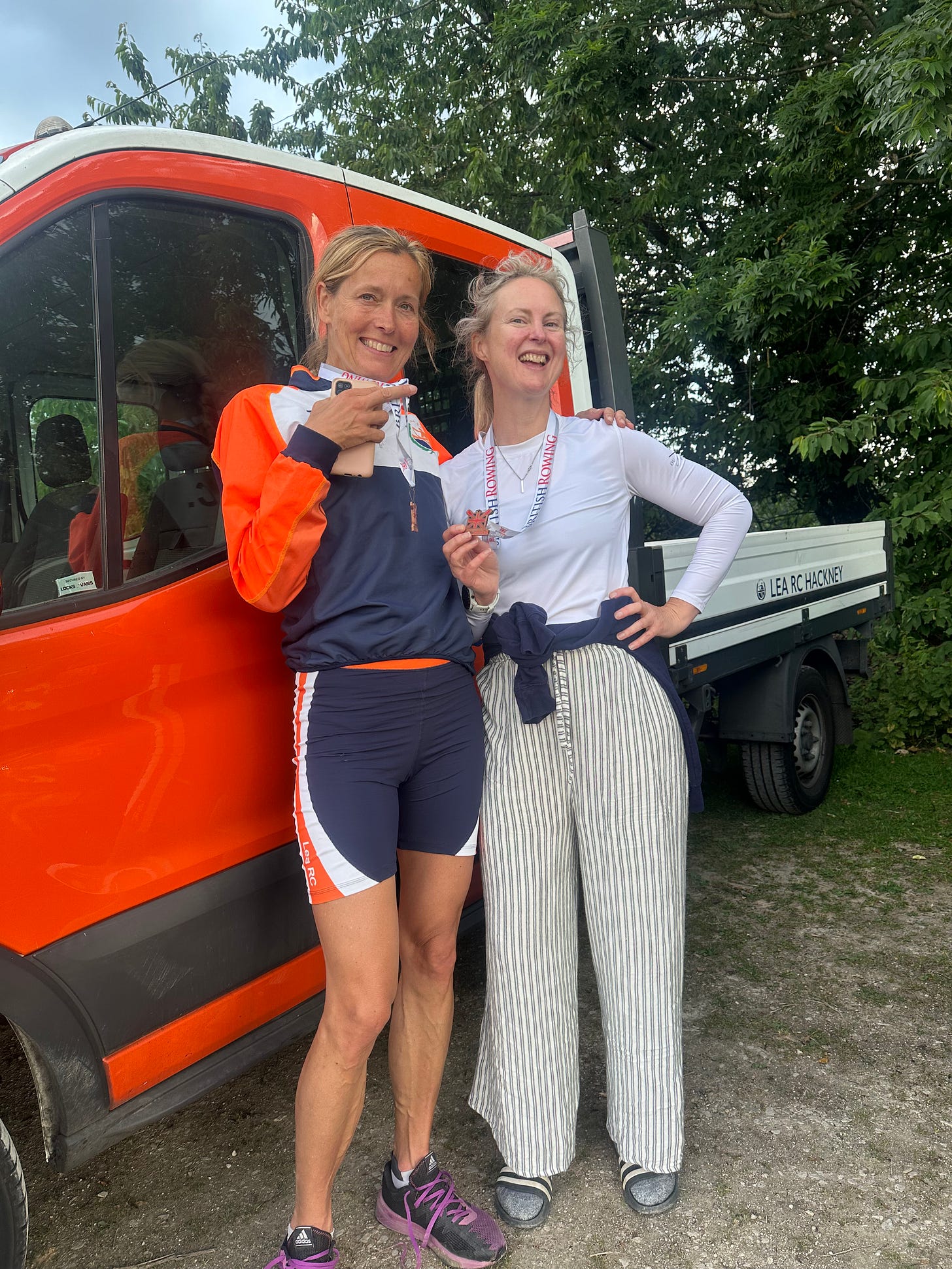Why failure matters more than success
We can learn more about our sporting performance from losing rather than winning: it's what drives us on, after all
Do you ever worry that you might be pushing yourself too hard? It seems a ridiculous question to ask of ocean rowers or potential ocean rowers, but it is worth asking.
It’s something many rowers ask themselves mid-crossing, in the midst of a middle of the night existential crisis. Isn’t it enough to be attempting to row an ocean: do we have to do it faster than everyone else?
I asked myself this same question yesterday, after an incredibly tough day of “rowing” rowing, at the British Masters Championships at Holme Pierrepoint in Nottingham.
Isn’t it enough to be doing this at 54: do I have to be faster than everyone else?
What’s the worst that can happen?
Conditions on the rowing lake were fairly close to being on an ocean – except that the wind was blowing the wrong way. Consider that the land was first earmarked to be an airport, but then they decided it was too windy.
I watched Ashley, a brave Master G (aged 65 and up) rower from the Lea Rowing Club, attempt to get her boat fixed to the stake boat before the start of a race. By the time I got on the water in my single, stake boat starts had been abandoned in favour of free starts (roughly getting everyone in a line).
Waiting for the start was terrifying. I tried to rationalise it: the worst that can happen is that I can fall in the water. That would be embarrassing and a bit chilly, but nothing more: not like capsizing in an ocean rowing boat.
So why the fear - especially given I have actually rowed an ocean? Perhaps it’s the loss of control we are afraid of, not the getting wet.
I tried to take my t-shirt off (a simple failure of planning, not to remove it before rowing to the start) – it stuck to my face, nearly knocking my sunglasses into the water, and my blades, balancing under my chest, began to dig into the lake.
Every ocean rower knows that feeling. As the blade digs deeper in the water, the more your boat begins to tip to one side. I managed to rescue the situation just before the point of no return.
Like rowing on the sea
Keeping the blades above the water was the other option: that resulted in being pushed in a wind tunnel up away from the start to the end of the lake. I’ve only ever felt this before in a squall on the Atlantic: it was quite remarkable to be experiencing it on a lake in England. When this happened to another woman before my friend’s heat, she had a panic attack and had to be rescued.
The gusts were up to 33mph according to one graph: they started to cancel races, but the single scullers of any age were deemed hardier than inexperienced young men (fair enough, we are a tough breed). The race could go on.
I paddled gingerly to the start: there were only four of us, two having scratched already. Two rowers disappeared ahead, managing the conditions better than me: the fourth caught a crab and came to a stop. By default, I’d managed to get in the final. “Woman versus nature, not really a race,” I commented to a fellow rower.
I rather wished I hadn’t got in the final. By that time the weather seemed, if anything, worse. Just as on the Atlantic, I’d take a stroke and miss the water, which sends you lurching backwards. Waves were breaking over the back and front. It was impossible to establish any kind of rhythm. Yes, it was like rowing on the sea.
On the ocean, I didn’t want to stop at all: it was only grudgingly that I would admit we occasionally need to clear the barnacles off the bottom – although (top tip) our anti-foul paint did a fantastic job of keeping them off.
I hated the feeling that our rivals were getting ahead while we were sitting still. Yet yesterday I did something I have never done before in a race: I stopped momentarily. A launch was close to me and I briefly considered being rescued myself.
But no: one or two expletives later and I’d regrouped. I wasn’t going to win bronze, like last year; nor was I going to give up. I readjusted my expectations. Out of the corner of my eye, I could see a rower in lane six going through a similarly bad time.
That was my new goal: I absolutely refuse to lose this race. I kept catching her up and then falling behind when a wave hit. Then finally conditions eased slightly towards the end: I could put some power down and get ahead.
I did enough to ease over the line before her: fifth. My rowing had been terrible, but at least I wasn’t last.
Is it the winning, the losing or the taking part?
The day could only improve from there. I jumped straight into a double with my partner Teresa: the joy of being in a bigger, more stable boat was enough to lift my spirits.
We won our heat. By the time the final rolled around at 5:58pm, I’d rowed three races and had developed a banging stress/wind-induced headache.
I can’t really fault our final race as I felt we rowed well, but I had little left in the tank. The winners went clear at 300m or so. We were in fourth but, as we usually do, we started to move through the pack.
Too late: we almost overhauled the second placed boat on the line but fell short by 2/3rds of a canvas – just over half a second. We needed more lake, or I needed arms and legs that still worked.
Not the gold medal of last year, but a consolation bronze nonetheless.
So: is it enough to be doing this at 54, do I have to be faster than everyone else? You know the answer: obviously, I have to be faster than everyone else. It’s not simply about the taking part.
On the way home, Ashley said, “It’s the failing, more than the winning, that drives me on.”
I totally agree. Olympic gold medal winners often talk about that morning after feeling: “What do I do now?” That’s not to say winning isn’t glorious, it is: everything has gone right. But there’s a lot more to think about if you lose.
How can I go faster? Should I adjust my training? Do I need to get more miles on the water? Can I reverse the ageing process? Should I stop drinking?
I’m exhausted, I still feel a bit nauseous from the adrenalin overload, but my brain is buzzing, thinking about how I can improve.
And maybe it’s the same with Mark Slats, or the Olympic gold medal winners too. They might be faster than everyone else, but the next goal will be to beat themselves, and their own times.
That is the competitive mindset, after all. And it’s what gets people across oceans, even if they don’t always recognise that in themselves before they leave. You really wouldn’t be rowing an ocean without it.







